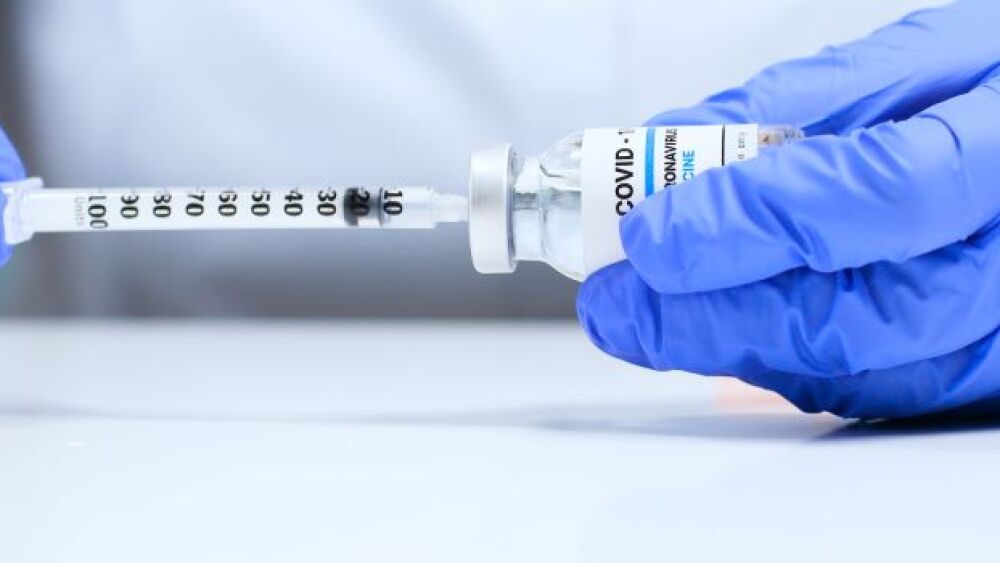Not only is this the first approval for a plant-based vaccine, it’s also the first approval for GSK’s adjuvant.
Canada’s Medicago scored a regulatory first after Health Canada approved its plant-based COVID-19 vaccine Covifenz that has been paired with GlaxoSmithKline’s pandemic adjuvant as a preventative treatment against the SARS-CoV-2 virus in individuals 18 to 64 years of age.
Brian J. Ward, medical officer at Medicago, said Canada’s approval of Covifenz is demonstrative proof that the company’s novel plant-based platform can do the job. “We’re really excited about the approval,” Ward told BioSpace.
Medicago’s two-dose vaccine is entering a crowded space for vaccines in Canada. The approval of the vaccine comes days after Novavax won authorization of its Nuvaxovid vaccine. In addition to those two vaccines, the mRNA vaccines from Moderna and partners BioNTech and Pfizer have also been approved, as has the Johnson & Johnson vaccine. The AstraZeneca vaccine was also authorized in Canada but concerns over clotting have sidelined it.
While the Medicago vaccine is a novel approach, Ward said Covifenz is still similar to a traditional vaccine. And, that may give the drug some traction among individuals who have held out against receiving one of the mRNA vaccines. Ward said some people may be drawn to something that’s plant-based over vaccine technology that is not widely known or understood by the general public.
“We’re well aware of what the environment is for a vaccine coming in at this stage of the pandemic. We’re in a really good position, I think, especially when you have the efficacy data against a range of variants, that’s pretty exciting,” he said. Ward added that the antibody titers generated by Covifenz are among the best of all the available vaccines.
Medicago’s plant-based production platform uses the leaves of an Australian plant as bioreactors in order to produce the spike (S) protein, which self-assemble into Virus-Like Particles (VLPs) for use in the CoVLP (Coronavirus Virus-Like Particles) vaccine candidate. The Australian plant is in the same family as tobacco but Ward noted it’s not a tobacco plant.
“It’s in the same family like a Chihuahua is in the same family as the wolf,” he quipped.
Approval of Covifenz was based on positive clinical data that demonstrated the safety and efficacy of the vaccine. Phase III data was reported in December at a time when infections were largely driven by the Delta variant. Data showed that Covifenz demonstrated 71% efficacy against all variants of the virus.
Against the Gamma variant, the vaccine was 88.6% effective, and 75.3% effective against the Delta variant. No cases of the Alpha, Lambda and Mu variants were observed in the vaccinated group while 12 cases were observed in the placebo group, the companies said. The Omicron variant was not circulating during the time the study was being conducted, both GSK and Medicago said.
Medicago and GSK had submitted data to Health Canada on a rolling submission beginning in April 2021. It was right around the time the company announced positive interim Phase II data that was part of an ongoing Phase II/III study.
Medicago and GSK first partnered on this vaccine in July 2020. The collaboration was made after Medicago announced it produced a Virus-Like Particle (VLP) of the coronavirus and began to develop its vaccine candidate. GSK’s adjuvant technology is designed to both boost the immune response and reduce the amount of antigen required per dose. The adjuvant allows for more vaccine doses to be produced, which leads to the protection of more people from the threat of viral infection.
Not only is this a first approval for a plant-based vaccine, it’s also the first approval for GSK’s adjuvant.
In addition to Medicago, the company paired its adjuvant with other experimental vaccines, including one developed by Sanofi that is expected to soon be submitted for regulatory review. Roger Connor, president of GSK vaccines, called the first approval “an important milestone in our approach of pairing GSK’s well-established pandemic adjuvant with promising antigens to develop protein-based, refrigerator-stable COVID-19 vaccines to help protect people against COVID-19 disease.”
Ward touted the partnership with GSK, saying it has been a good collaboration and the two companies will continue to work together in other Covifenz studies.
Medicago is not sitting on its laurels following this important company milestone. Ward said the company is seeking regulatory approval in the United States, the United Kingdom, Europe and Japan. The U.S Food and Drug Administration previously granted Covifenz Fast Track Designation. The company had been submitting data to the FDA for Emergency Use Authorization but when that pathway was closed last year, Medicago was forced to pivot to a more traditional filing. Ward noted that at this point, the FDA has the same data as Health Canada. The company is also in talks with the World Health Organization about including Covifenz in the COVAX program, he said.
In addition to seeking approval from other regulatory agencies across the globe, Medicago is also conducting additional trials for Covifenz, including a booster study that will assess a third dose of the drug on top of two doses of its own type, as well as in combination with mRNA doses. The vaccine is also being studied in pediatric patients down to newborns, Ward said.
Manufacturing is also a focus for the company. Ward said the company is focused on fulfilling the order for 20 million doses from the Canadian government and is also working to expand its global manufacturing facility in Canada.





